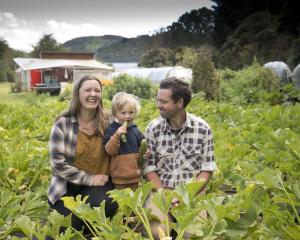A new term and fresh start may be just what the doctor ordered after a tumultuous three years at the Otago Regional Council.
The council’s past three years have been marked by investigations, departures, setbacks and scrutiny.
Nevertheless, significant rates rises included in the present long-term plan were put in place because over the next three years an ambitious work programme is due to take shape at the council.

It will set policies and rules to protect the region’s water, land, and air, while also increasing its focus on climate change, biodiversity loss and urban development in the region.
Specifically, the council plans to increase staff numbers, nearly doubling staff, in order to keep up with the work central government demands.
It must notify its landmark land and water plan, giving effect to the concept of Te Mana o te Wai, the vital importance of water, by the end of next year.
The incoming crop of councillors should also expect to open new headquarters for the council in Maclaggan St, in Dunedin’s city centre, next term, as it moves out of its present Stafford St headquarters and its leased office at Philip Laing House.
Interim chief executive Dr Pim Borren, in his first report to councillors, said he was pleased with the work under way at the council.
"ORC has many very talented people," he said. "We need to ensure our communities get the opportunity to recognise that too.
"We are working hard on both clearer communications as well as publicising our many good news stories to counter some of the negative press."
The "negative press" he is referring to could be media coverage of an investigation this year by retired High Court judge Sir Graham Panckhurst.
That investigation found the relationship between councillors and the former chief executive Sarah Gardner was "unwell if not broken" before her departure.
It uncovered "fundamental problems" related to leadership and culture at the council.
It was also followed, mere months later, by another damning investigation report, this one commissioned by Environment Minister David Parker.
As a result of that investigation, Prof Peter Skelton said staff told him councillors were trying to "trip staff up" and delay decision-making and that they were unwilling to accept staff advice.
The former chief freshwater commissioner told Mr Parker he found it hard to believe that the councillors’ call for more scientific evidence for a decision on water take limits for the Manuherikia River was solely based on concerns about the science.
Fallout from that meeting included the resignation of former councillor Marian Hobbs.
The Dunedin constituency councillor was not replaced ahead of this election and the council has been operating with 11 instead of 12 councillors.
Moreover, more than a year on, the additional scientific evidence the councillors asked for has yet to be produced.
Prof Skelton’s report confirmed the council would not be getting an extension on the tight timeframes it faces to improve its plans and processes as set by Mr Parker in 2019.
This, despite the fact the High Court had only just struck down a council gambit to fast-track its foundational planning document, its regional policy statement, through a new freshwater planning process.
Dr Borren’s report last month said there had been positive steps taken at the council towards a more trusting and respectful relationship between senior managers and councillors.
However, he also noted his desire to work on maintaining a "positive staff culture" at the organisation.
The fact the council had over 15% staff turnover over the last 12 months concerned him, he said.
The challenge of recruiting more staff was beset by unfilled vacancies in the organisation as it moved from 180 full-time equivalent employees to 330 full-time roles, he said.
Recruiting Dr Borren’s replacement could be the most important challenge for the council at present.
Dr Borren’s replacement is due to be picked by the new crop of councillors and that decision alone could be one of the most significant in the next term.












